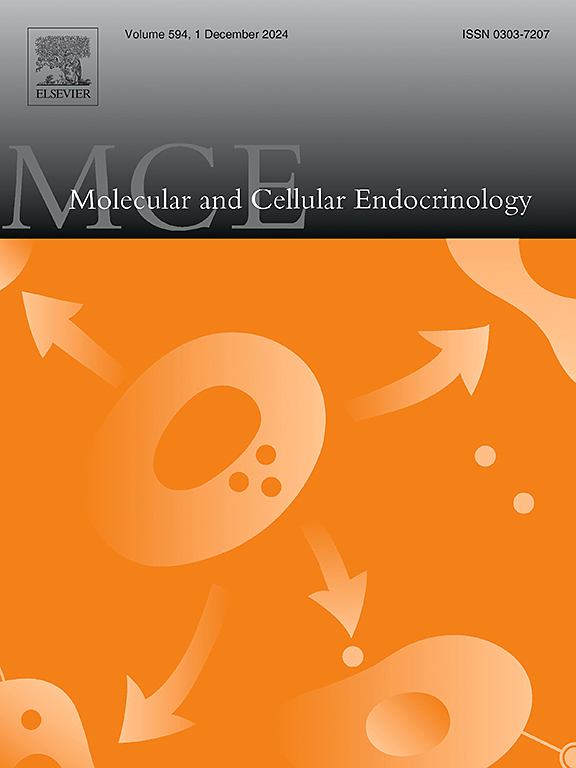脱氢表雄酮(DHEA)诱导的自噬保护肝细胞免受脂肪毒性
IF 3.6
3区 医学
Q2 CELL BIOLOGY
引用次数: 0
摘要
脱氢表雄酮(DHEA)是性激素的前体,与非酒精性脂肪性肝炎(NASH)或代谢功能障碍相关脂肪性肝炎(MASH)的发病机制有关,研究表明脱氢表雄酮水平与疾病严重程度之间存在很强的相关性。在这项研究中,我们证明DHEA通过促进自噬来减轻脂毒性诱导的肝损伤。我们的研究结果表明,dhea诱导的自噬是由雌激素受体α (ER-α)和雄激素受体(AR)激活介导的,并保护肝细胞免受棕榈酸诱导的凋亡、脂肪变性和炎性体激活。在小鼠NASH模型中,脱氢表雄酮治疗可诱导肝脏显著自噬,进一步支持脱氢表雄酮的肝脏保护作用。总的来说,我们的研究结果确定DHEA是一种促自噬激素,具有治疗NASH脂肪毒性的治疗潜力。本文章由计算机程序翻译,如有差异,请以英文原文为准。
Dehydroepiandrosterone (DHEA)-induced autophagy protects against lipotoxicity in hepatic cells
Dehydroepiandrosterone (DHEA), a precursor of sex hormones, has been implicated in the pathogenesis of non-alcoholic steatohepatitis (NASH) or metabolic dysfunction-associated steatohepatitis (MASH), with studies suggesting a strong correlation between DHEA levels and disease severity. In this study, we demonstrated that DHEA alleviated lipotoxicity-induced hepatic damage by promoting autophagy.
Our findings demonstrate that DHEA-induced autophagy is mediated by estrogen receptor alpha (ER-α) and androgen receptor (AR) activation and protects hepatic cells against palmitate-induced apoptosis, steatosis, and inflammasome activation. DHEA treatment in a murine NASH model induced significant autophagy in the liver, further supporting the hepatoprotective role of DHEA. Collectively, our results identified DHEA as a pro-autophagic hormone with therapeutic potential for the treatment of lipotoxicity in NASH.
求助全文
通过发布文献求助,成功后即可免费获取论文全文。
去求助
来源期刊

Molecular and Cellular Endocrinology
医学-内分泌学与代谢
CiteScore
9.00
自引率
2.40%
发文量
174
审稿时长
42 days
期刊介绍:
Molecular and Cellular Endocrinology was established in 1974 to meet the demand for integrated publication on all aspects related to the genetic and biochemical effects, synthesis and secretions of extracellular signals (hormones, neurotransmitters, etc.) and to the understanding of cellular regulatory mechanisms involved in hormonal control.
 求助内容:
求助内容: 应助结果提醒方式:
应助结果提醒方式:


